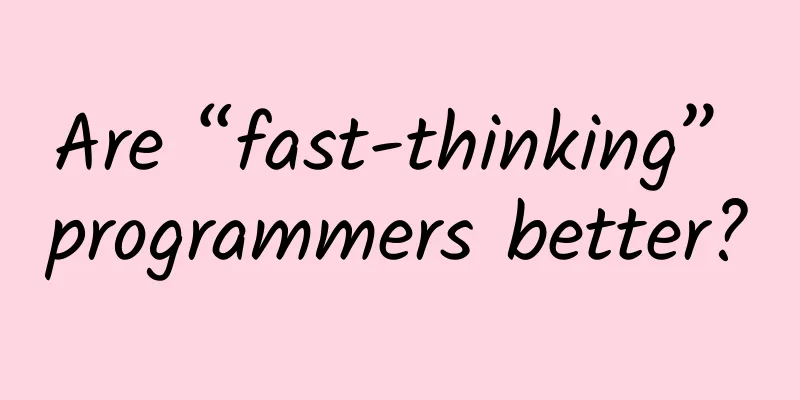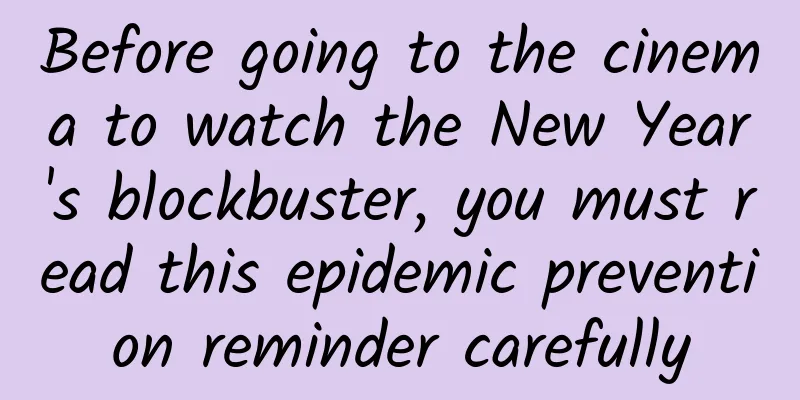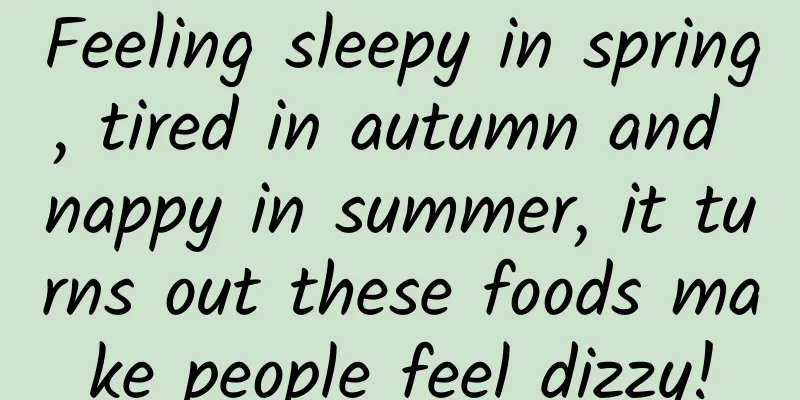Are “fast-thinking” programmers better?

|
A few days ago, an article on Hacker News titled "Why People Who Think Slowly Win" caused widespread discussion. Netizen Scott Burson commented on the article: "I hired a TopCoder champion before. I expected him to code very quickly, but he turned out to be the most careful and meticulous person. But everyone gradually discovered that in two years, the code he submitted never had a bug, never."
Why do people who seem to think slowly win? The authors say that so-called slow reactions require more self-discipline than fast reactions. In contrast, fast reactions are more inaccurate, while slow thinking is like a tortoise, slow but steady. Everyone remembers the story of the tortoise and the hare, but no one seems to have learned the lesson that slowness pays off. We usually think that people who react quickly are smart and work hard, and people who react slowly are lazy, indifferent, or even stupid. And when we usually talk about slowing down, we usually mean to relax, not to complete things more efficiently. This is not the case. Sean Frederick, a professor at the Yale School of Management, says that homework can reveal the essence of slow thinking, which is to solve problems step by step through reasoning. Frederick is best known for creating the "cognitive reflection test" - a measure of whether a person "solves problems quickly after a short period of thinking" or "makes decisions after a long reflection arc and deliberates." Here are his test questions: There are three problems:
Frederick says respondents often give intuitive but incorrect answers like: 10 cents, 100 minutes, 24 days. However, the correct answer to the first question is 5 cents. The correct answer to the second question is 5 minutes. The correct answer to the third question is 47 days. The reason why people find these simple questions difficult to solve is that these three questions use specific wrong answers to tempt human intuition. Among the 3,428 people surveyed, 33% answered all three questions incorrectly, and another 33% answered at least one question incorrectly. Among all universities, MIT students had the highest percentage of correct answers to all questions, but still only 48%. Frederick often shares this test in his speeches, and most people still give intuitive but wrong answers. He says the test shakes people's confidence and makes them less trusting of their intuition, which may cause them to take longer to look at things. Scott Burson also mentioned in his comments that thinking fast or slow depends on the specific situation. Different projects and different situations require different types of programmers, and sometimes you have to move fast and break the rules at the risk of being able to bear it. Despite this, most people agree that developers should move from coding quickly to coding carefully whenever possible. |
<<: The first year of virtual reality games has arrived. How should you play?
>>: Which programming languages are most popular at hackathons?
Recommend
WeChat 8.0 To add friends, you must set friend permissions
IT Home reported on January 22 that WeChat had a ...
Douyin operation: Enterprises, you must not do Douyin!
Companies must not do TikTok! In 2019, ByteDance’...
Social Media Marketing Strategy with Sales of 1.5 Million+ in 10 Days
In large-scale marketing activities, community op...
Is the iPhone 11 a "downward movement" or a "return"?
[[276741]] If the keyword after last year's A...
Choose the most reasonable solution and find the product growth point
Recently, during an interview, a friend excitedly...
Operation: What should B-side products do in the initial cold start phase?
"Cold start" has become a hot topic for...
It is a power source and also a wireless media center - BAKE I mobile power experience
Smartphones are becoming more and more like compu...
A collection of the pitfalls you will encounter when adapting to iOS 9
[[151640]] This article mainly talks about some p...
What are the functions of the Guangzhou Maternal and Child WeChat Mini Program? How much does it cost to develop a WeChat mini program?
As a typical representative of the market segment...
Striving for strength at sea, building a "national treasure" - Wan Buyan, a "model of the times"
He not only loves to read martial arts novels, bu...
How could such a large lake disappear just like that? Where can we find evidence of life on Mars?
In the long evolution of a planet, stones are bot...
Tesla Model 3 will be the first to adopt innovative glass technology
Recently, according to US media reports on Novemb...
Xiaodai - 8 core lectures on quick account creation, teach you how to make your own account explode in 8 days
Xiaodai - 8 core lectures on quick account creati...
Why are 5G phones not selling as well as 2G phones in China?
Recently, the China Academy of Information and Co...
This type of charging data cable can burn up an entire room in 3 minutes, so it must be replaced!
Mobile phones are an indispensable necessity for ...









